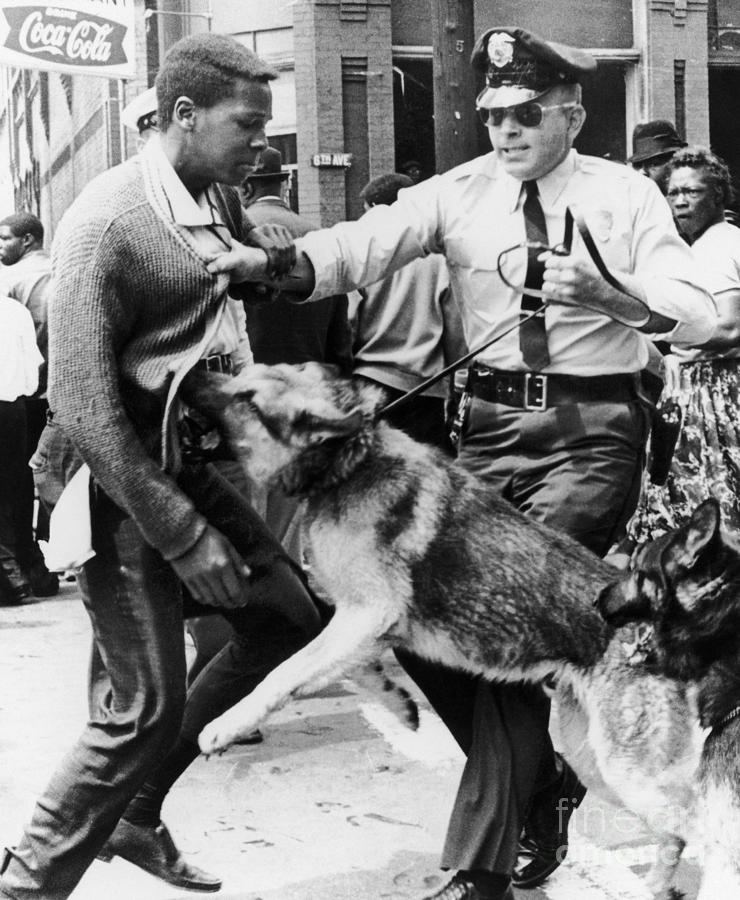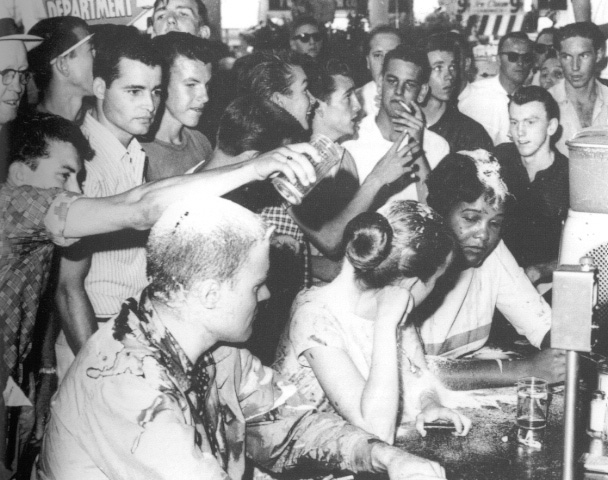
As reported in the New York Times, "Students’ Knowledge of Civil Rights History Has Deteriorated, Study Finds," by Sam Dillon, on 28 September 2011 -- When Julian Bond, the former Georgia lawmaker and civil rights activist, turned to teaching two decades ago, he often quizzed his college students to gauge their awareness of the civil rights movement. He did not want to underestimate their grasp of the topic or talk down to them, he said.
“My fears were misplaced,” Mr. Bond said. No student had heard of George Wallace, the segregationist governor of Alabama, he said. One student guessed that Mr. Wallace might have been a CBS newsman.
That ignorance by American students of the basic history of the civil rights movement has not changed — in fact, it has worsened, according to a new report by the Southern Poverty Law Center, on whose board Mr. Bond sits. The report says that states’ academic standards for public schools are one major cause of the problem.
“Across the country, state educational standards virtually ignore our civil rights history,” concludes the report, which is to be released on Wednesday.
The report assigns letter grades to each state based on how extensively its academic standards address the civil rights movement. Thirty-five states got an F because their standards require little or no mention of the movement, it says.
Eight of the 12 states earning A, B or C grades for their treatment of civil rights history are Southern states where there were major protests, boycotts or violence during the movement’s peak years in the 1950s and ’60s.
“Generally speaking, the farther away from the South — and the smaller the African-American population — the less attention paid to the civil rights movement,” the report says.
Alabama, Florida and New York were given A grades. Those states require relatively detailed teaching about the decade and a half of historic events, roughly bookended by the Supreme Court’s 1954 school desegregation ruling and the April 1968 assassination of the Rev. Dr. Martin Luther King Jr. and the enactment of the federal Civil Rights Act a week later.
Many states have turned Dr. King’s life into a fable, said Mr. Bond, who now teaches at American University and the University of Virginia. He said his students knew that “there used to be segregation until Martin Luther King came along, that he marched and protested, that he was killed, and that then everything was all right.”
Alabama, Florida and New York require teaching not only about Dr. King but also about others like James Meredith, who in 1962 became the first black student to enroll at the University of Mississippi; Medgar Evers, the rights organizer murdered the following year in Jackson, Miss.; and Malcolm X, the Muslim minister who challenged the movement’s predominantly integrationist goals.
Some experts in history education criticized the report’s methodology. Fritz Fischer, a professor at the University of Northern Colorado who is chairman of the National Council for History Education, said it was unfair to give Colorado and some other states an F because of vague state history standards, when they are required by state constitutions or laws to leave curriculum up to local districts.
“The grading system they came up with does a disservice in putting the focus on requirements that certain states are unable to meet and will never be able to meet,” Dr. Fischer said.
Even though Colorado’s standards barely mention the civil rights movement, some Colorado schools teach the civil rights movement thoroughly, he said. “I’ve been in classrooms and watched them teach about the sit-ins and about the controversies between Martin Luther King and Malcolm,” he said.
The report is by no means the first to sound an alarm about nationwide weaknesses in the teaching of American history.
Over the past decade, students have performed worse on federal history tests administered by the Department of Education than on tests in any other subject. On the history test last year, only 12 percent of high school seniors showed proficiency.

The law center’s report noted that on that federal test, the National Assessment of Educational Progress, seniors were asked to read a brief excerpt from the Supreme Court’s 1954 Brown v. Board of Education ruling, including the phrase, “Separate educational facilities are inherently unequal.” Only 2 percent of the seniors were able to state that the ruling had been prompted by a school segregation case.
“I appreciate that they are shining a light on this,” said Kathleen Porter-Magee, a senior director at the Fordham Institute, a conservative Washington research group that produced its own report card on states’ American history standards this year. “We found that U.S. history standards were generally mediocre to awful, and this report finds the same thing.”
Even in schools that try to teach history rigorously, the civil rights movement may get short shrift because in the traditional chronological presentation of United States history, teachers often run out of time to cover post-World War II America, said Maureen Costello, a director at the poverty law center who oversaw and edited the report, titled “Teaching the Movement: the State of Civil Rights Education in the United States 2011.”
One reason the center decided to produce the report now is that 2011 is the 50th anniversary of crucial 1961 events, including the freedom rides. (source: The New York Times)
Under Color of Law






No comments:
Post a Comment